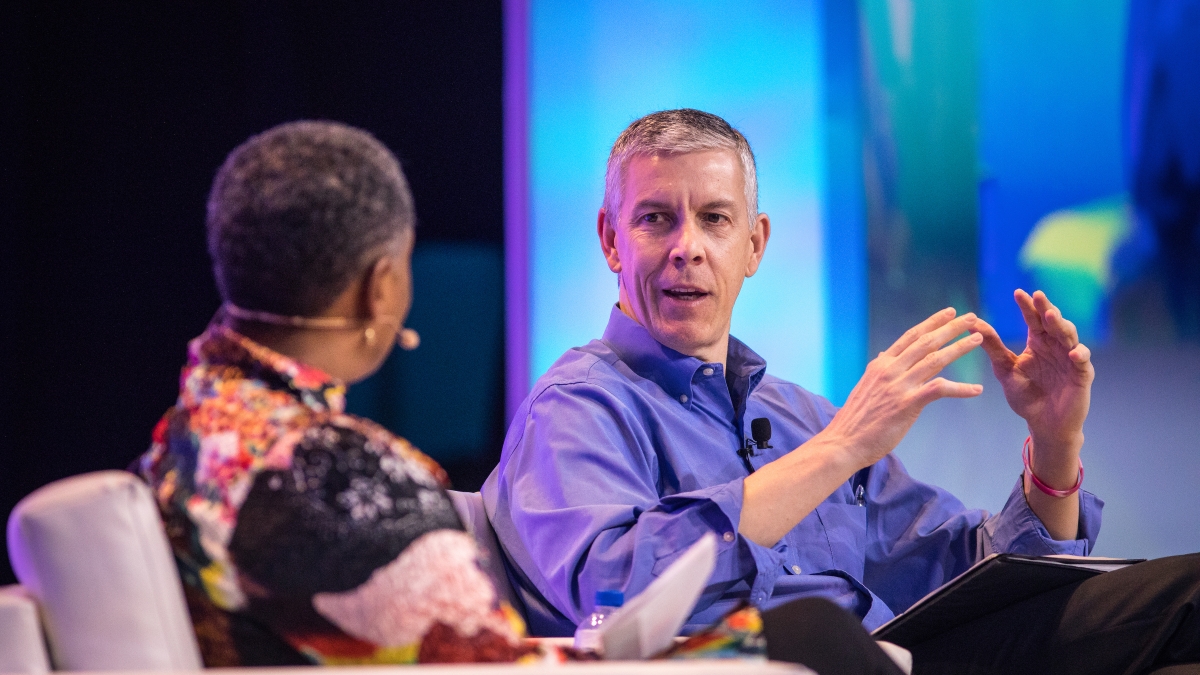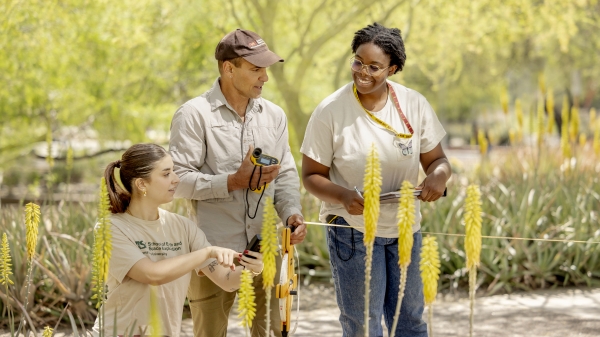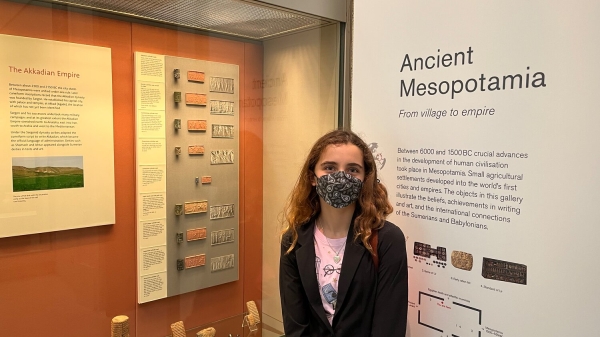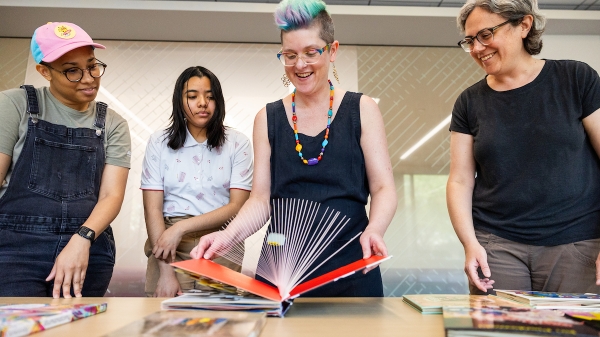ASU + GSV morning conversation: Finding common ground to move past school violence

Editor's note: Read more of the highlights from the ASU + GSV Summit on our blog.
The final day of the ASU + GSV Summit began with a discussion between Jessie Woolley-Wilson, the chair, CEO and president of DreamBox Learning, and Arne Duncan, the managing partner of Emerson Collective and a former U.S. secretary of education. On the heels of the passing of former first lady Barbara Bush, the pair discussed the state of the nation and how far — or not — the country has progressed on issues of education, tolerance and violence.
Duncan grew up in Chicago in a family that was deeply involved in the community and focused on expanding educational opportunities for students from all walks of life. As an adult, his desire to have an impact led him to work with Emerson Collective, a nonprofit organization that, among other things, provides an alternative to a life of crime for at-risk and incarcerated individuals by offering job skills training and legal employment opportunities.
According to Duncan, addressing educational attainment issues in Chicago begins with addressing the pervasive, violent crime that plagues schools and neighborhoods and traumatizes students, families and communities. Duncan noted that for the seven years he was the head of Chicago’s schools, they lost a student to gun violence every two weeks. At the Chicago high school he founded, 17 students were shot last year.
In the aftermath of the Marjory Stoneman Douglas High School shooting in Parkland, Florida, Duncan facilitated meetings between survivor and activist Emma Gonzalez and some of the participants in his organization — many who had experienced gun violence throughout their lives — to learn from one another and discuss solutions. “We need math and science and STEM. But we need to find ways to bring kids together and find some common ground that is not around losing your best friends in shootings.”
In spite of the statistics, Duncan remains optimistic. “I’m hopeful. In every crisis there is an opportunity. Our country is strong, and I think it’s an amazing opportunity to do this leapfrog to a better place together.”
Following the conversation, ASU President Michael Crow provided the keynote address, making the case for redesigning education in order to meet the needs of today’s lifelong learners. He described the new design of universal learning at ASU as an “evolving model capable of being of service to all learners, at all stages of work and learning, from all socioeconomic backgrounds, through educational, training and skill-building opportunities.”
ASU President Michael Crow delivered a keynote address on edesigning education Wednesday morning at the ASU + GSV Summit. Photo by Charlie Leight/ASU Now
ASU’s focus on developing partnerships, sharing knowledge and resources, and developing innovative and entrepreneurial programs has allowed it to be nimble and adaptable, at scale.
“We’re trying to build a model where the university can be a home to learners that come to learn with us at a particular point in their life,” said Crow. “And then also a place that can be accessible to learners anywhere, anytime, anyplace, drawing from the combined energy of the learners — the faculty, the students, the staff, the library, the support mechanisms, everything of the university itself.”
Crow went on to host a discussion with the winners of the 2018 Harold W. McGraw Prize in Education. The annual awards are presented by McGraw-Hill Education and ASU, and recognize outstanding individuals whose contributions are making a difference in education today. The 2018 award winners are:
• Arthur Graesser, professor in the Department of Psychology and the Institute of Intelligent Systems at the University of Memphis — winner of the inaugural Learning Science Research prize
• Reshma Saujani, founder and CEO of Girls Who Code — winner of the Pre-K-12 Education prize
The event concluded with a keynote panel, “From Silk Road to Silicon Valley, China Leading the Way,” moderated by Adi Ignatius, editor-in-chief, Harvard Business Review, and featuring panelists:
- Rick Levin — senior adviser and former CEO, Coursera, and former president, Yale University
- R. May Lee — dean, School of Entrepreneurship and Management, ShanghaiTech
- Gale Huang — CTO, TAL Education Group
- Victor He — deputy CEO, China First Capital Group Limited
- Dun Xiao — co-founder, 17zuoye
The discussion centered on the complexities of the Chinese and American education systems, with panelists noting that differences in the country’s markets, business practices, approaches to education and cultural values were not insignificant obstacles to forming partnerships and impacting education at scale.
“We should be very clear that in some ways, education is viewed around the world as a way to a better life,” said Lee. “But it’s also very much a reflection of each society’s core values. I think that in order to understand, you have to know that when we teach in this country, we talk about things in terms of social and emotional learning. But we also convey some very core values that we care about in the United States, around democracy, around self-agency, around independence, that is very difficult to translate to a different system.”
Top photo: DreamBox Learning chair and CEO Jessie Woolley-Wilson (left) interviews former U.S. Secretary of Education Arne Duncan during the breakfast keynotes at the ASU + GSV Summit 2018 in San Diego on April 18. Photo by Charlie Leight/ASU Now
More Arts, humanities and education

The College set to launch 15 new degree programs
The College of Liberal Arts and Sciences at Arizona State University is launching 15 new academic programs in fall 2024. Nine of those programs will include online formats, expanding learning…

Mother–daughter duo travel abroad while advancing education through online offerings from ASU
Getting an education while seeing the world with your loved ones? Sounds like a dream come true.For 12-year-old Aanya Sosa and her mother, Beth, it’s a reality, thanks to online educational offerings…

ASU Library collection is deceptively simple fun
Editor’s note: This is part of a monthly series spotlighting special collections from ASU Library’s archives throughout 2024.Arizona State University’s Eugene D. Valentine Collection is a whimsical…
